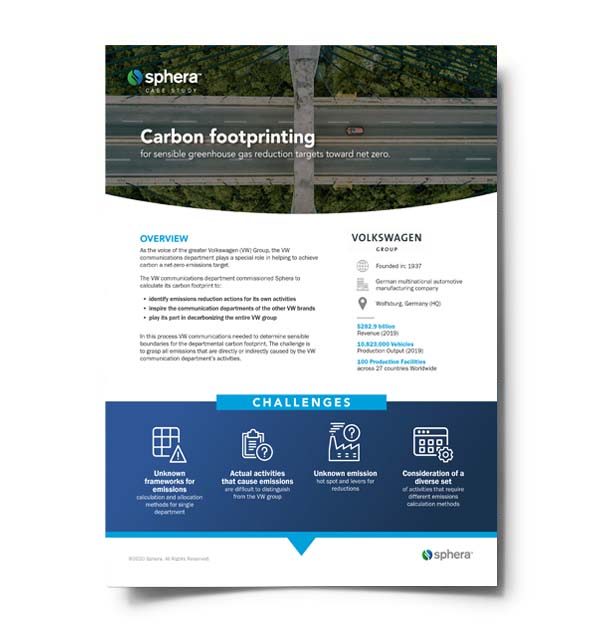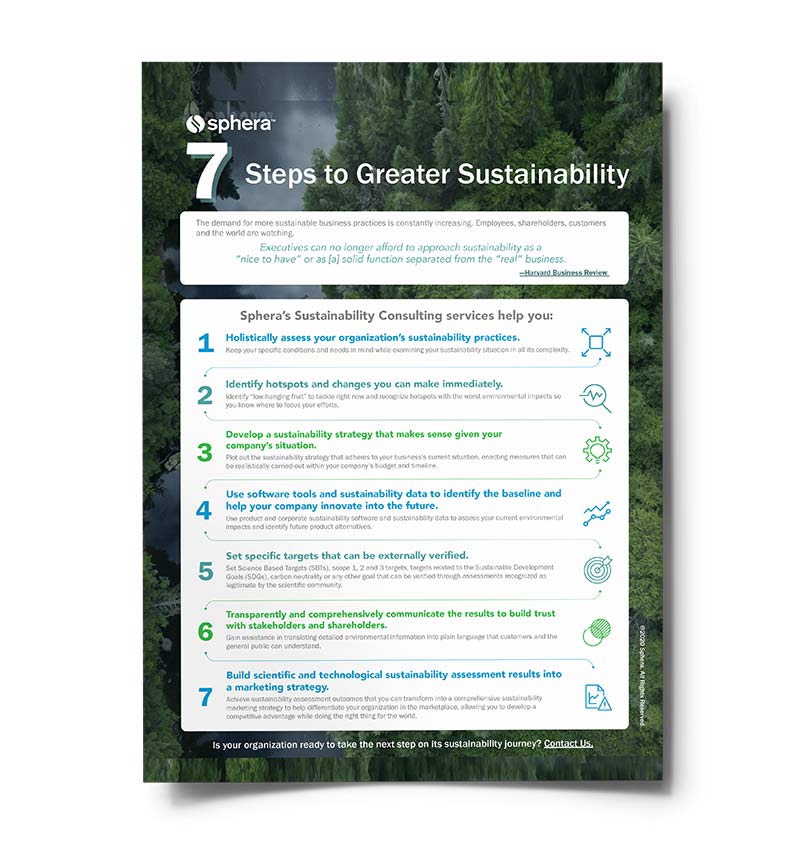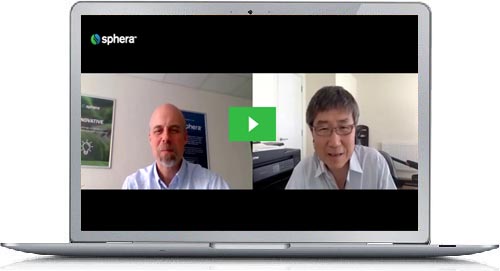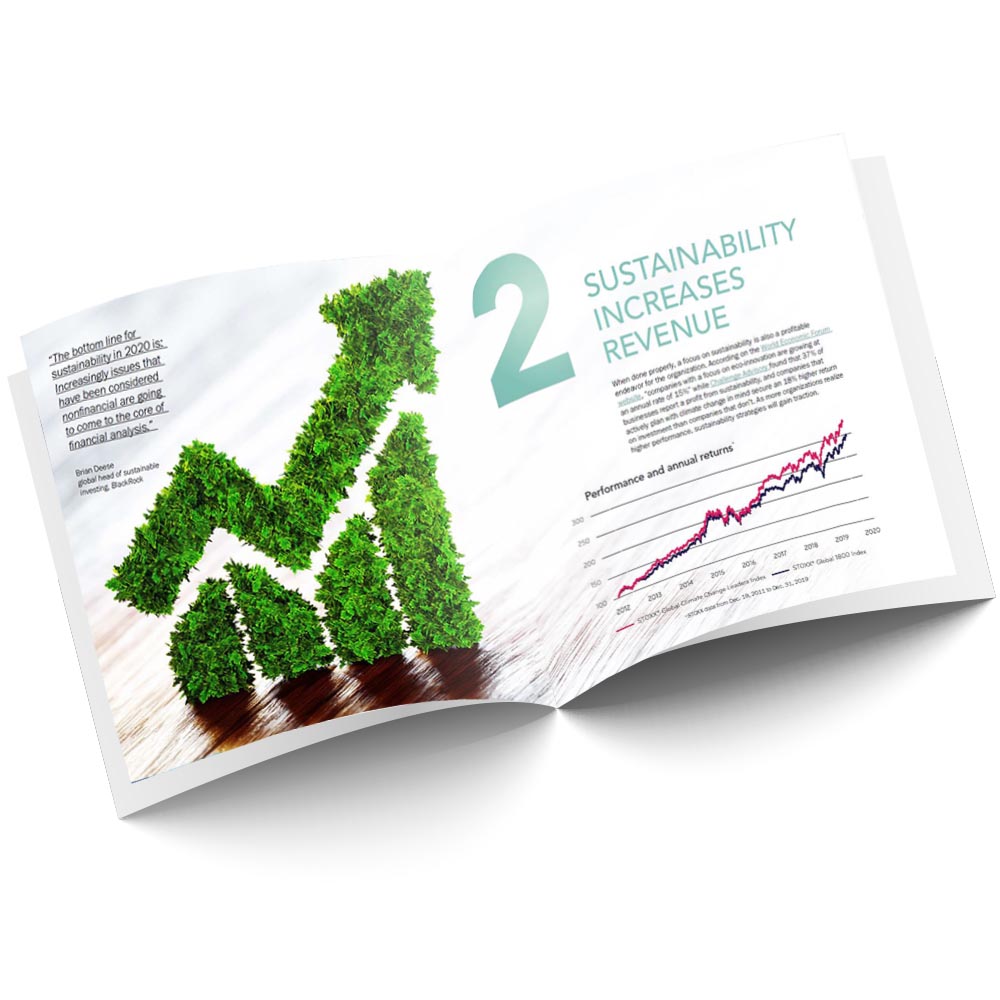Environmental, Social and Governance (ESG) factors are no longer just a consideration for corporations. They are now a required, vital element of business strategy. Driven by the need to achieve a more sustainable society—from combating climate change to ensuring fair working practices—ESG, when applied correctly, can enable corporations to be a force for positive change.
External stakeholder pressure on ESG performance exists too, and it comes from increasing legislation, consumer preferences and a changing investment risk landscape. Particularly when it comes to the “E” in ESG, there is mounting pressure on investors to be more transparent with their portfolios and reduce their environmental impact.
So, regardless of their sustainability ambitions, companies must monitor and report on their environmental performance in order to satisfy stakeholders and ensure regulatory compliance. But there’s a lot to contend with, especially for companies with diverse product portfolios (and the complex supply chains that come with them). These companies need to prepare for new requirements around carbon accounting, recycling compliance and other environmental impacts.
To capture a holistic, detailed and accurate environmental footprint of a product, a comprehensive life cycle assessment (LCA) is required. Fortunately, new automated LCA solutions give businesses the ability to capture the environmental impact of products more accurately and at scale.
Drivers for Change
Consumers want greater transparency around the environmental impact of the products they buy, as well as the steps that businesses take to mitigate their overall impact on the environment. Clearly, they have a great deal of influence. So do investors, who are at the forefront of the push for more accurate emissions accounting and reporting from businesses.
In fact, investors are behind recently proposed regulations in Europe and the U.S. which, if approved, will establish stricter reporting requirements for companies. The aim is to arm investors with better information about how businesses could be affected by climate change, as well as how their operations contribute to it. Failure to comply could lead to fines and reputational damage, so the stakes are high.
For example, the U.S. Securities and Exchange Commission (SEC) and the European Financial Reporting Advisory Group (EFRAG) issued proposals earlier this year that would require Scope 1, Scope 2 and Scope 3 emissions disclosures, as well as information on climate-related risk. In February this year, the U.K. provided guidance for the Companies (Strategic Report) (Climate-related Financial Disclosure) Regulations 2022 and the Limited Liability Partnerships (Climate-related Financial Disclosure) Regulations 2022, which are based on the TCFD’s recommendations. And in late 2021, New Zealand released The Financial Sector (Climate-related Disclosures and Other Matters) Amendment Act 2021, which requires companies under the jurisdiction of the Financial Markets Conduct Act 2013 to publish climate-related disclosures from FY2023 onward.
Other organizations and government bodies are calling for stricter legislation and requirements as well. Late last year, the U.K. Green Building Council launched the Whole Life Carbon Roadmap, which calls for legislation to limit the damage that development inflicts on the environment during the construction and use phases. And the European Commission has proposed mandatory digital product passports that make it easier to repair or recycle products and allow materials of concern to be tracked in the supply chain.
How Automated and Operationalized LCAs Support Regulatory Compliance Efforts
While regulatory proposals and requirements will pose a challenge for businesses, LCAs will help them meet this challenge. But many businesses do not have a robust LCA program in place for their entire product portfolio.
Thankfully, LCA automation software offers a powerful solution. The efficiencies generated through automation are significant, given that it can take up to 12 months to complete a LCA for a single product. LCA automation allows professionals to turn their focus to analyzing results and implementing improvements. And it gives businesses the defensible data and reports they need for compliance. As regulatory and consumer pressure for greater transparency grows, LCA automation will become a critical tool for business success.
Supporting key decision making at every stage, LCA automation gives teams the insights needed to proactively predict and control a product’s environmental impact. By integrating with existing tech stacks systems, it can be rapidly operationalized to deliver fast access to a product portfolio’s sustainability data, while also flagging harmful materials and methods that could damage LCA ratings.
Once a Nice-to-Have, Now a Must-Have
LCAs were once seen as add-ons to broader corporate sustainability efforts. But expanding regulatory pressure and growing consumer interest in environmentally friendly products are persuading businesses to track and address the environmental footprint of their products more transparently. LCA automation is one of the strongest tools available for a company’s decarbonization efforts.
For more information on this business-critical solution, sign up for our June 2nd LCA Automation webinar.











